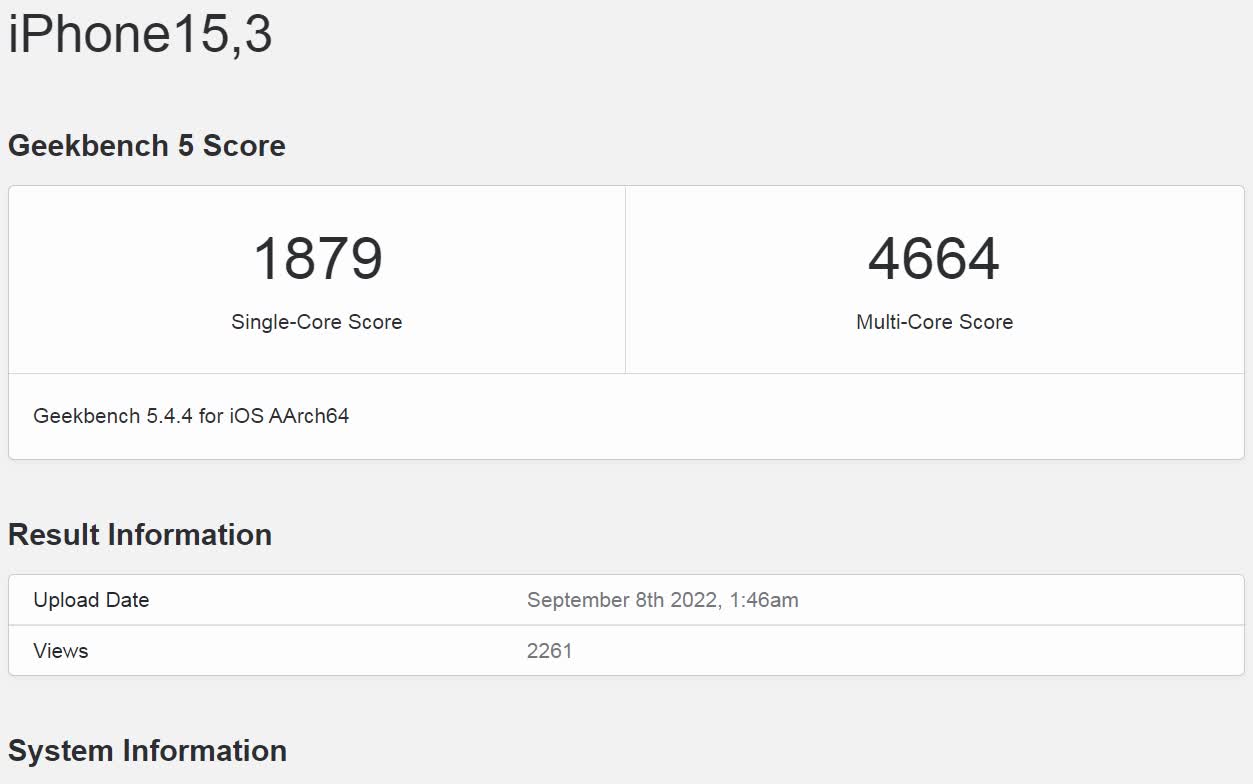The big picture: When Apple confirmed the new iPhone 14 and iPhone 14 Plus would ship with last year's A15 Bionic SoC instead of its latest chip, some assumed it was a cost-cutting measure, a way to skirt ongoing component shortages or perhaps a tactic to further differentiate between the mainstream and Pro line. Turns out, sheer performance may have factored into the decision as well.
Geekbench test results from an iPhone 14 Pro (model iPhone15,3) reveal a single-core score of 1879 and a multi-core score of 4664. As MacRumors highlights, an iPhone 13 Pro with last year's A15 Bionic chip is capable of 1707 in the single-core test and 4659 in the multi-core assessment. The test in question was uploaded on September 8 at 1:46 a.m.
Put another way, the A16 Bionic is roughly 10.1 percent faster than the A15 Bionic in the single-core test and only 0.1 percent faster in the multi-core benchmark.
Apple during its iPhone 14 Pro keynote billed the A16 Bionic as the fastest chip ever in a smartphone. Built on a smaller 4nm process with nearly 16 billion transistors, it features two high-performance cores alongside four efficiency cores. According to Cupertino, the CPU is up to 40 percent faster than the competition.
For comparison, the A15 Bionic as well as the Apple M1 and M2 chips are built using a 5nm manufacturing process.
The A16 Bionic's five-core GPU is said to have 50 percent more memory bandwidth compared to the A15 Bionic. There's also a new 16-core Neural Engine capable of nearly 17 trillion operations per second for advanced machine learning tasks.

Keep in mind that this is only one test. A full suite of benchmarks and real-world tests will need to be run to paint a complete picture of where the A16 Bionic sits compared to last year's model and competing Android handsets.
Apple's iPhone 14 Pro and Pro Max go up for pre-order on September 9 and ship on September 16 with pricing starting at $999.

